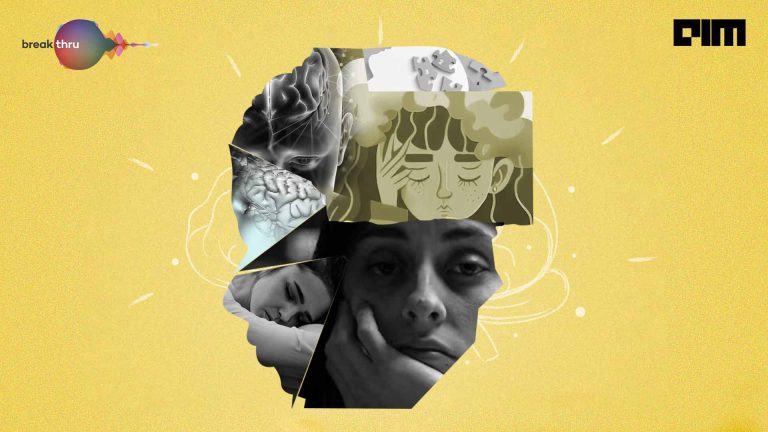Recently, a team of European scientists, led by researchers at the Max Planck University, has developed a machine-learning model to predict psychosis in patients in clinically high-risk states.
The study found that psychosis transitions could be predicted in a broader risk spectrum by sequentially integrating machine learning models and psychiatric assessments of clinical and biological data.
The algorithm helps in targeted and timely intervention detecting the possibility of psychosis, in clinical high-risk (CHR) patients or patients at risk of depression (ROD).
Here, we try to understand how the scientists developed the machine learning model to diagnose psychosis and look at the benefits of using such models.
The Process
A multi-modal machine learning integrates different modes or domains of information like linguistic, acoustic, and visual data. The study integrated clinical and neurocognitive data, structural magnetic resonance imaging (sMRI), and polygenic risk scores (PRS) for schizophrenia — same sources of data a physician would use to diagnose psychosis.
Data for 334 patients in CHR states or ROD was collected to analyse the risk of psychosis transition, which was defined as patients showing at least one of the five positive symptoms that reached psychotic intensity daily for seven days.
The study analysed the data using a machine learning software called NeuroMiner, developed to test unimodal, multi-modal, and clinically scalable sequential risk calculators for transition predictions in prognostic tools.
First, unimodal risk calculators were trained across three different domains. The clinical-neurocognitive domain included data of prodromal symptoms, childhood adversity, functioning, and neurocognitive measures. The genetic domain included polygenic risk scores for schizophrenia, and sMRI domain included the grey matter volume maps.
Unimodal algorithms were then combined to see if they improve the prognostic accuracy using stacked generalisations. Later, it was combined with clinical rater’s predictions of whether the person will transition to psychosis.
Also, the differences between the prognostic assignment groups and a group of 334 healthy patients were checked to determine whether the predictive patterns of the models deviated from normality. It also ensured that the results were not affected by the prognostic generalising effect using patients’ longitudinal data and other unsupervised machine learning methods.
The researchers have developed a ‘sequential prediction method’ that optimises the ordering, number of data modalities, and the prognostic uncertainty thresholds to decide whether a patient needs further testing. Identifying the optimal prognostic workflow, the scientists tested whether it achieved similar performance as the fully stacked models.
Using AI Tools for Diagnosis
The study found that combining a doctor’s prognosis with algorithmic pattern recognition improved the prediction to a margin that justifies the clinical implementation of predictive machine learning tools.
Predicting psychosis and other complex mental health issues is a difficult task. The process is laborious and unaffordable to many vulnerable populations. Deployed at scale. tools like these can bring down the diagnostic cost and facilitate differentials.
AI provides multiple ways to diagnose a person’s mental health conditions. One does not always need to be in a specialised medical facility, which is usually an essential requirement for diagnosing complex mental health issues.
Apart from analysing a person’s biological parameters, methods like text analysis of a person’s social media or monitoring behavioural patterns through smart devices can help in mental health prognosis.
Hence, AI tools can improve prognostic accuracy and clinical scalability in terms of availability and affordability.
Wrapping Up
The scientists went the extra mile to ensure accuracy in their process. They developed a model predicting psychosis on the basis of multiple modalities and made sure the process was fool-proof by including clinical experts, considering possible prognostic generalisations, comparing diagnosis of healthy patients, and even conducting external validations to double-check.
Predictive AI tools developed using such fool-proof, and empirical methodologies can help in many ways. Mainly they make mental health resources available and affordable to many. They also help improve accuracies, but at the same time, according to the lead researcher of the study, it is imperative to include qualified human professionals in the process and not depend on technology alone.




















































































